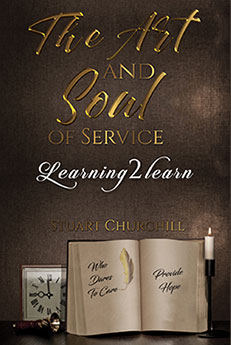

In the search for truth, learning becomes the key that opens up the door of contemporary knowledge. I had no interest in healthcare politics until one day a very influential person challenged me to be part of the solution rather than just complaining. This started my learning journey into the complex world of power games, political brinkmanship and who controls the money. From the government to who provides the tools to carry out care of those who ‘suffer’? When there is not enough money to pay for the care, who makes the decision of who lives and who dies.The problems now being seen are only the beginning of finding solutions to care that provides hope for all those who ‘suffer’ from both physical and psychological pain. The more we understand, the more learning needs to take place. Not just about solving the past problems, but to get in front and be ready to solve the questions that are going to be asked in the future. Dreaming about what is possible and finding the pathway of making it happen should be the number one priority not trying to fit a healthcare damaged foot into an ill-fitting healthcare boot. Just throwing money at the problem solves nothing, how the money is used holds the answer to reducing suffering and provides hope and care to those who ‘suffer’ every day.

To answer question one is as difficult as it can be, due to the deep seated development of poor historical healthcare systems over the last four decades that has led to silo divisions and a healthca ........

Being a hospital trained General and Psychiatric Registered Nurse and hold a degree in Health Science and a Master in Management specialising hospital resource development, with 50 years’ of health ........

What is a blog? I suppose it means whatever you want it to be, a conversation to make a point, create a two-way discussion in developing further understanding or just getting something off your che ........
Austin Macauley are one of the fastest-growing publishers, striving hard to give authors the best chance of succeeding in an increasingly crowded market. With headquarters in London, New York and Sharjah, Austin Macauley Publishers™ have established themselves as an energetic and innovative independent trade publishers.
+44 (0) 207 038 8212
+44 (0) 203 515 0352
mail@austinmacauley.com
Austin Macauley Publishers™ Ltd.
1 Canada Square, Canary Wharf,
London, E14 5AA
United Kingdom
